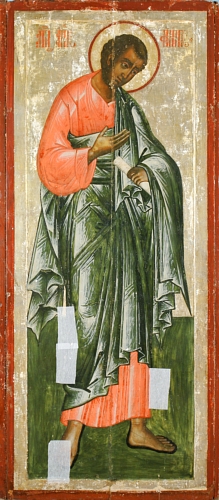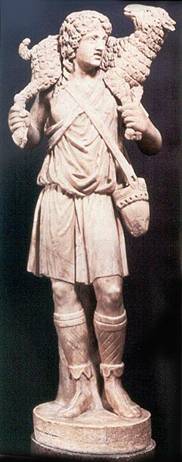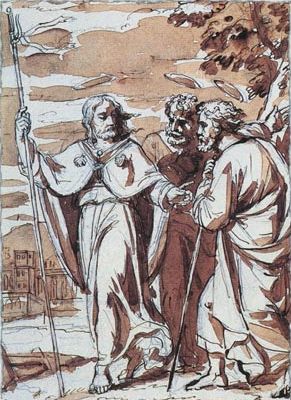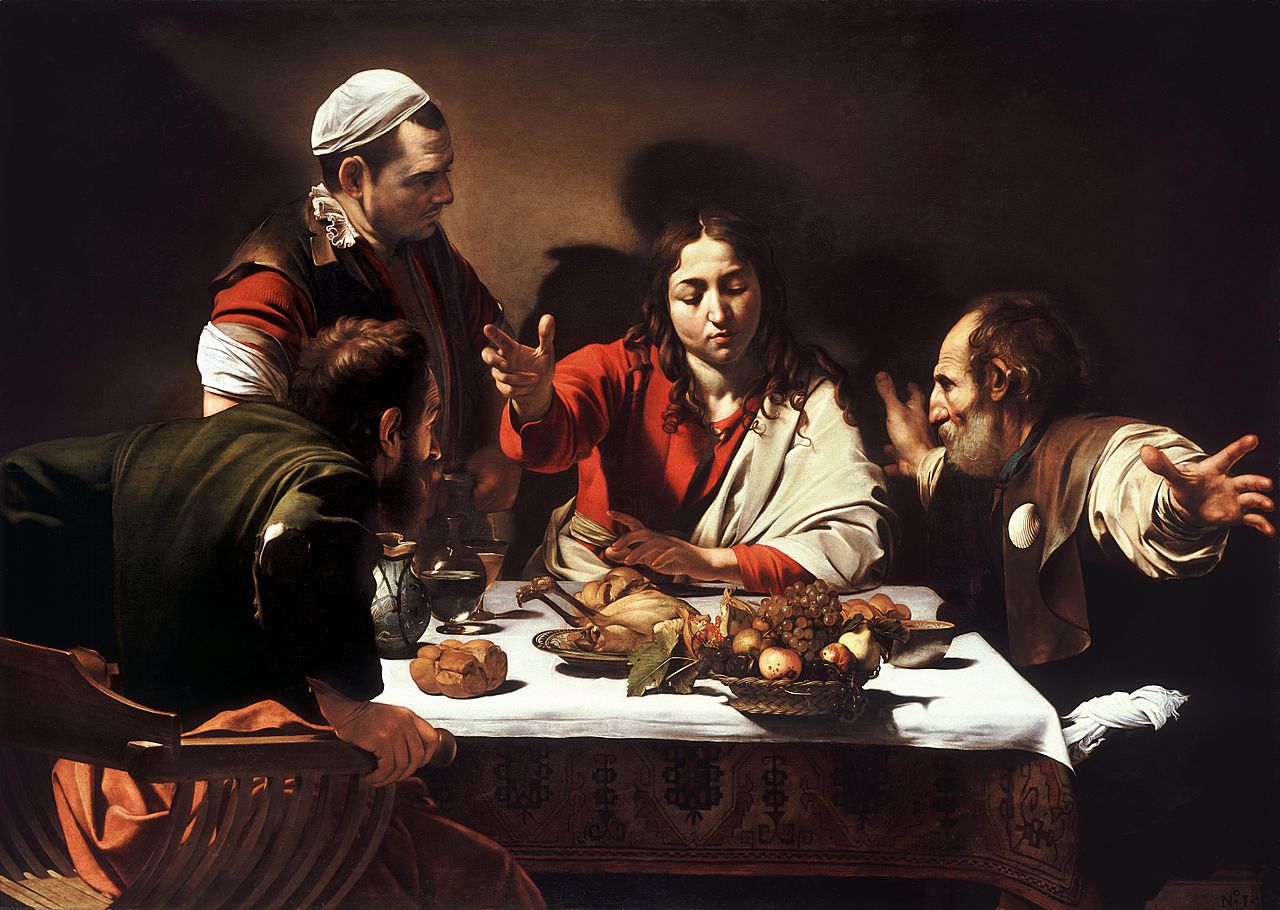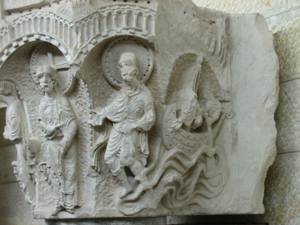Emil Dubnicka funeral (06 Apr 2008) Eccl 3. 1-14; Ps ; Rv 14.13; Jn 14. 1-6
Homily of Fr. Paul Panaretos, S.J.Unique PresenceOn behalf of Gesu Parish and personally, I extend our prayers and heartfelt sympathy to you, Doris, at the passing of your beloved spouse; and to you, Dori, Jim, Rob, Tom and Dan at the passing of your father. Your children, too, grieve, as do your your cousins and theirs. I want all of you grandchildren to remember how much your grandfather loved you and enjoyed being with you and with your cousins. It will be hard not to have your grandfather and great uncle in your lives as you did; however, he will continue to be with you in different and new ways, which each of you will discover.
Mary, Clara and Albert, I do not yet know a sibling’s grief. I do know your grief for your brother, Emil, is unique, and I extend our prayers and heartfelt sympathy to you three.

The Catholic church, Slovak associations and the United Brotherhood of Carpenters, as well as individuals, say farewell to a faithful and devoted friend of many years. I offer a few words to console and to strengthen each of you in your grief; to help you appreciate God’s astounding compassion by noticing that Jesus’ victorious dying and rising were present in the life of Emil and in you as well.
/1/I am grateful to you, Doris, and your children, for introducing me to your husband and father. Much of what you related to me reminded me of my own father. You need encouragement at this time because you will always feel his absence, which can distract you from the ways he will remain present to you in a different way.
That different way, as you have come to know more intensely these days, is through speaking about him and the memories of him your re-tellings keep very much alive. Human memory is consecrated by our memory of our risen Lord Jesus, whom recall with awe and hope at each funeral and particularly, a funeral at Easter.
The telling and retelling of Jesus’ resurrection reminded the first disciples of the risen Jesus. Their telling and retelling to people like us, who never knew the human Jesus, allowed them to enter into their memory of him, and more to encounter risen Jesus in personal ways.
Who Jesus was and what he did allow us to meet our Lord again and again. The unique feature of a Christian funeral is not that we pray for and bury someone’s body. The unique feature is that we enter into the mystery of life beyond death, for whom Jesus is our
pioneer,
teacher and
advocate, words the scriptures use of Jesus.
Like pioneer Jesus, Emil went ahead of you and prepared the way for you. Doris and your children were his #1. No math can explain how each of you was his #1. Love, not math, steered Emil’s life, and love empowers us to do things neither math nor human logic can explain.
A crucial part of his pioneering involved meeting your needs. Of course, that involved focusing on you and others more than himself. We measure discipleship with Jesus that way: disciples are not self-centered; they take care of themselves in order to stand with and for others.
Your father, grandfather and uncle was taught you well. Good teachers support and encourage. Like his dedication, the effective, supportive way your father taught you echoed, as I mentioned yesterday at the wake, my father. Supportive, effective teachers shape us to prepare others to make their ways in the world. The learning we receive Ecclesiastes summarized well:
because God...has put the timeless into our hearts... there is nothing better than to be glad and to do well during life. Emil taught well because you have so many stories, which recount how Emil echoed Jesus, who prepared his disciples to engage the world and not shrink from it.

Jesus advocated for his disciples. Jesus assured them of his ongoing care for them. Emil continues to advocate for you--his dear spouse, his children, grandchildren, nephews, nieces and friends--in his promised dwelling place with Jesus.
I believe the dynamic of the Easter season offers you encouragement to release Emil to our Creator and Redeemer and never lose him. Easter, which shapes Christians daily living, recalls Jesus’ risen and also is ever alert to the ways Jesus is present by his Spirit. “We honor Jesus’ absence,” wrote a contemporary believer, “when we discover the Spirit of Jesus the Servant animating us as a Christian community of faith.”
/2/Pioneer,
teacher,
advocate are three of Emil’s many good
works which
accompany him. You know many more. These three linked Emil closely with Jesus, and they encourage you, who honor Emil’s absence, to be alert to the ways Jesus desires both to console you and to be for others as Emil was for you.
___________________
/1/ Cf. Order of Christian Funerals 27.
/2/ Thomas R. Hawkins, Faithful Leadership. Cited by sojo.net in its Verse and Voice, 26 February 2008.
_______________________________________________________________
Wiki-image by Broederhugo is used according to the GFDL; of the Anastasis in Chora church is in the public domain.
 St. Ignatius Loyola had a phrase we have come to know and use: “to find God in all things.” It is relational. We know when we find God in daily experiences by the affects on us; how our hearts are opened, like the listener Lydia’s was; how our sense of purpose is refreshed; and by the actions which promote our relationship with God among others.
St. Ignatius Loyola had a phrase we have come to know and use: “to find God in all things.” It is relational. We know when we find God in daily experiences by the affects on us; how our hearts are opened, like the listener Lydia’s was; how our sense of purpose is refreshed; and by the actions which promote our relationship with God among others.